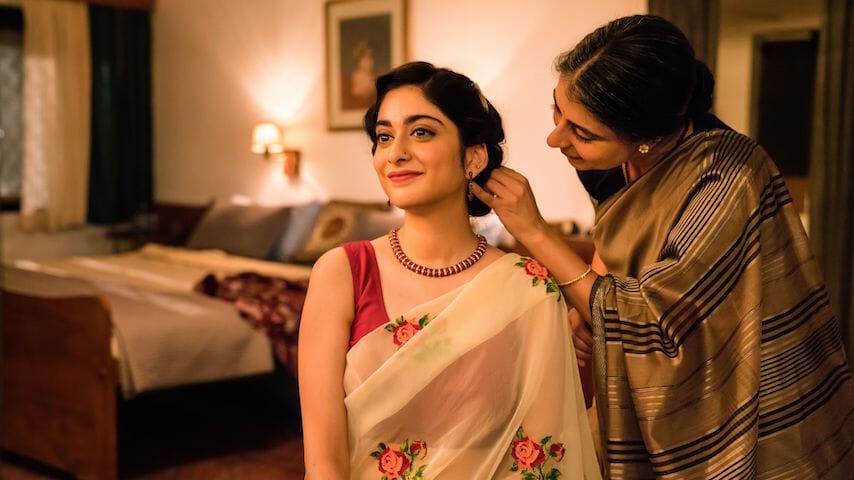A Suitable Boy: A Sweeping Meditation on Love in 1950s India
Photos Courtesy of Acorn TV
It makes sense, actually, that the TV adaptation of Vikram Seth’s 1993 novel A Suitable Boy would be penned by Welsh screenwriter Andrew Davies, because it shares so much with the Regency and Victorian-era pieces Davies has so iconically brought to life. Seth’s sweeping tale of love and life in 1950s India fits right alongside the matrimony-focused works of Jane Austen, the social commentary of Charles Dickens, and the political nuances of War & Peace. These Anglo comparisons are also relevant to the portrait drawn of A Suitable Boy’s India, where the fall of the British Raj has left a deeply divided country where the upper echelons of society are very much influenced by its recent colonial past.
The BBC One series, gorgeously directed by Mira Nair (Monsoon Wedding), is available on the very Anglo-centric Acorn TV in the U.S. and runs for six hourlong episodes. Building in both scope and emotional weight as it goes, A Suitable Boy is indeed filled with many suitable and unsuitable relationships throughout. Crossing class, religious, and prejudicial divides, the story introduces us to a number of interconnected families residing in Calcutta and a small village in Northern India. But the main focus is on Lata Mehra (Tanya Maniktala), a university student whose very Mrs. Bennett-esque mother Rupa (Mahira Kakkar) is determined to arrange a proper marriage for her.
-

-

-

-

-

-

-

-

-

-

-

-

-

-

-

-

-

-

-

-

-

-

-

-

-

-

-

-

-

-

-

-

-

-

-

-

-

-

-

-








































